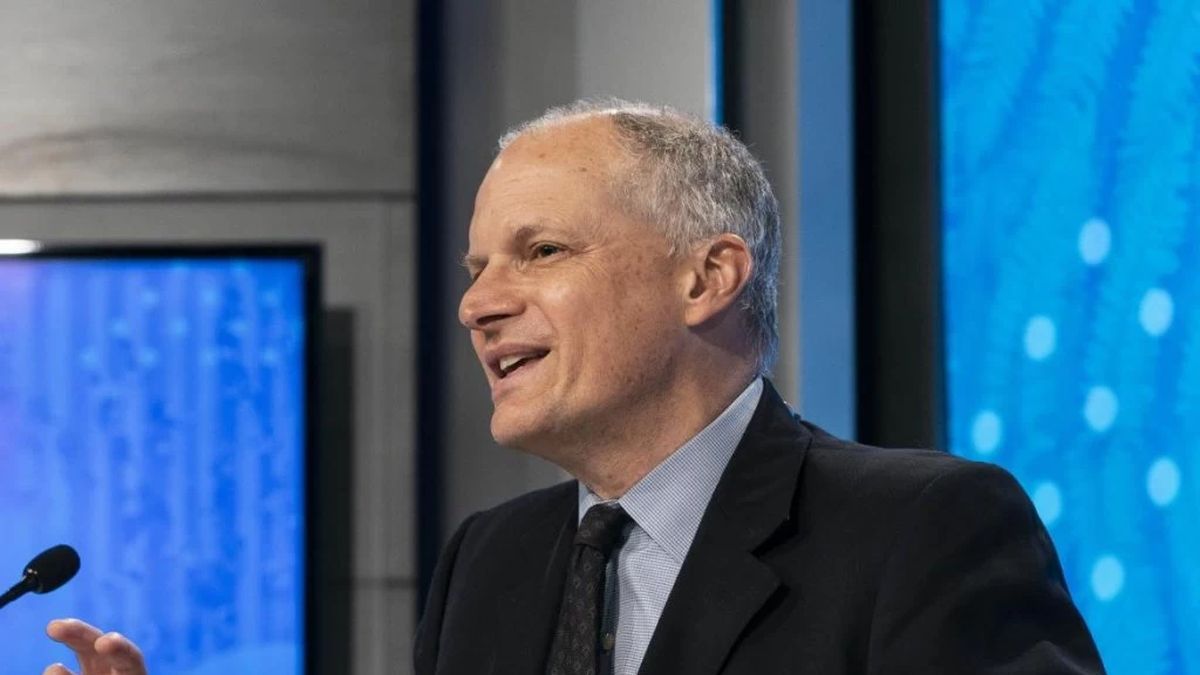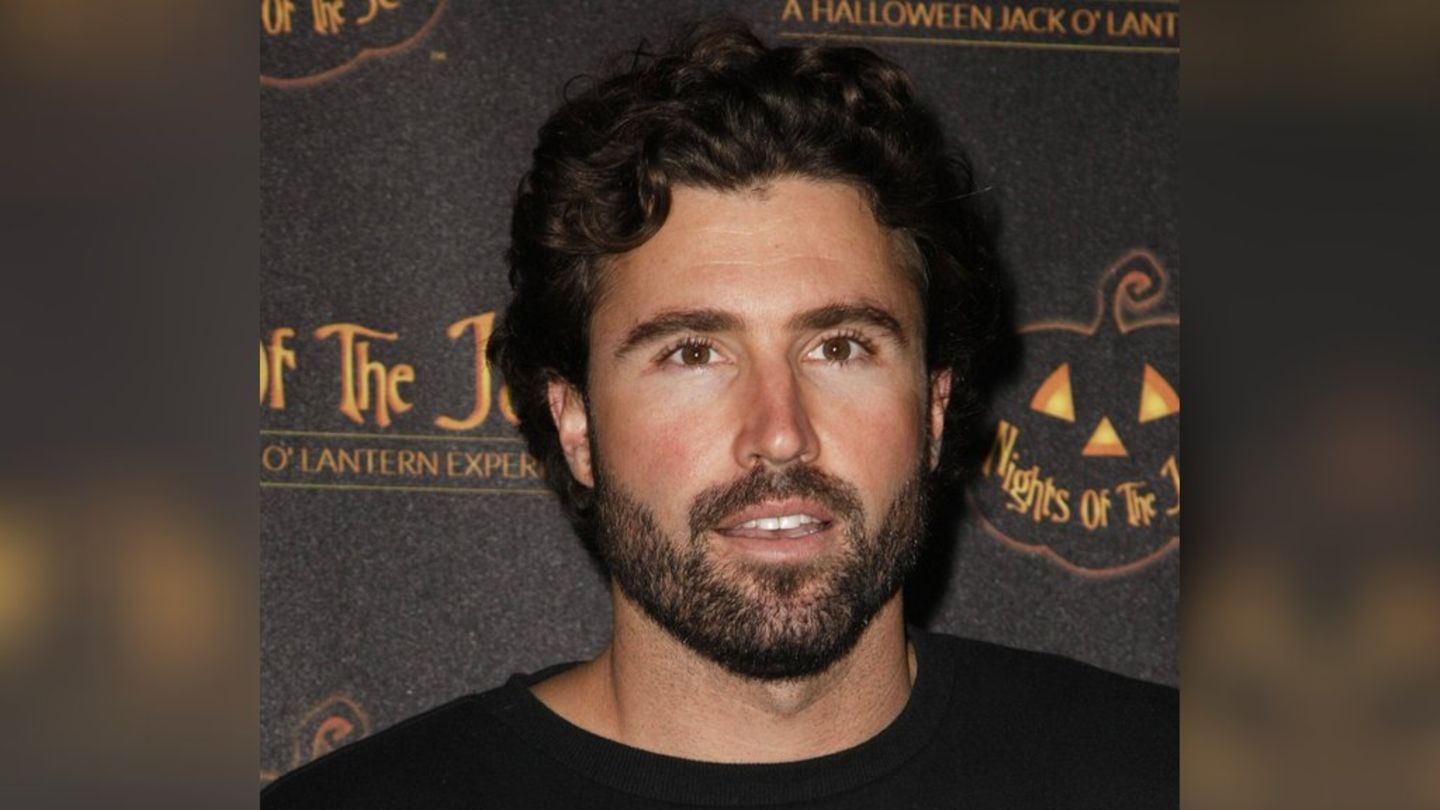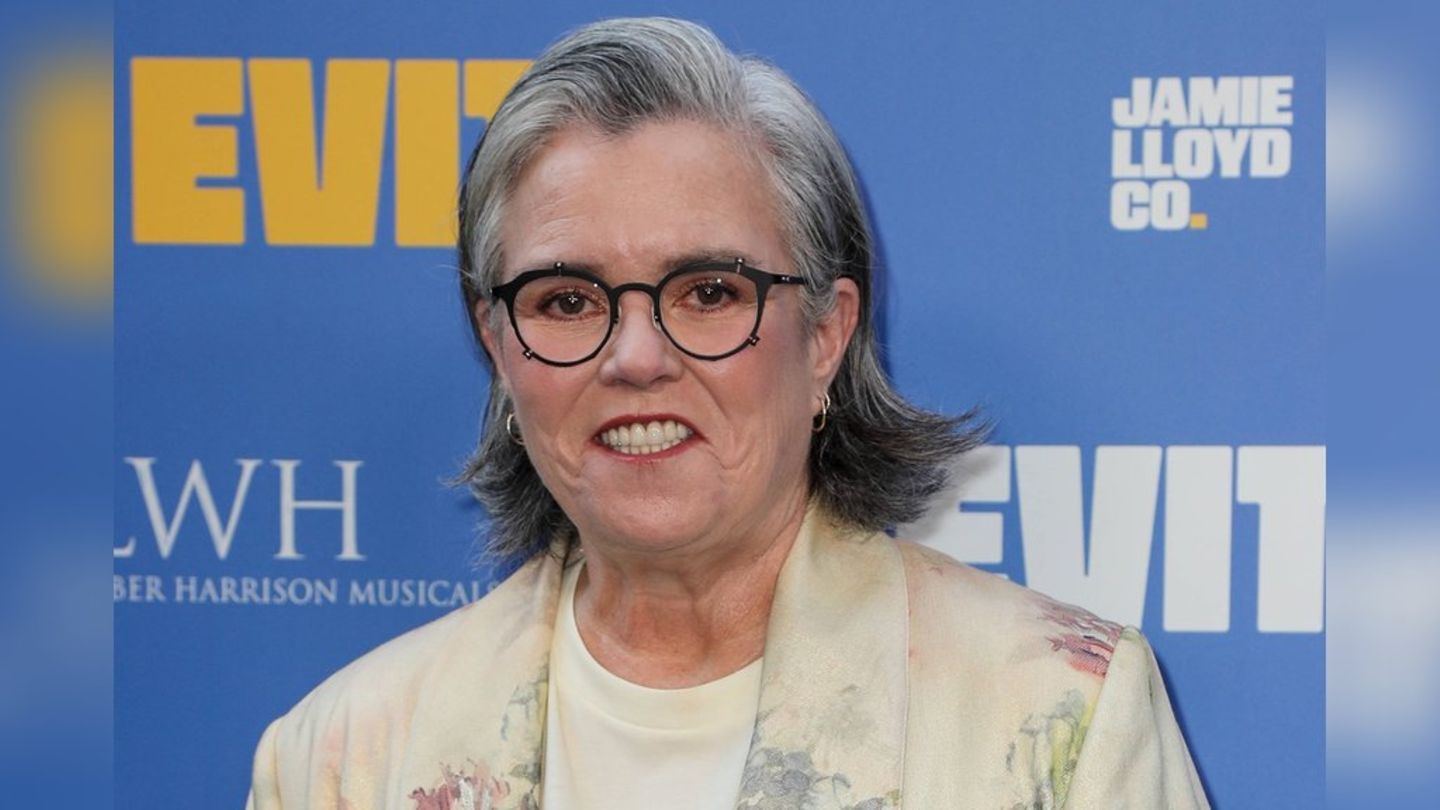trump will increase tariffs and deportations to the extent that it does not affect economic growth. China is likely to make policies in response to rising tariffs in the United States, and the European Union is likely to do so as well. The possibility of a tariff war would be very complex.
If that were to happen, The impact of a slowdown would hit everyone with special impact on agricultural and energy products. Today the markets are waiting for a regulatory and tax reduction that will generate an increase in investment and, therefore, a scenario of economic growth with less regulation.
werner.jpg
Alejandro Werner analyzed Argentina’s situation before the IMF.
Q: Elon Musk, a renowned businessman and Trump public activist, maintained a key participation during the new President’s campaign. Should we prepare for a second administration marked by the interests of private sector magnates?
AW: With Donald Trump being a businessman we are going to see several things. His circle of advisors and cabinet members will be businessmen or come from the financial sector. For the Treasury, certain names of people who have made their careers in the financial sector are being mentioned, and their intention to make the government easier and more efficient leads to wanting to have people with this vision. I believe that the cycle that is traditionally seen between Republicans and Democrats, where Republicans are in favor of deregulation and lower taxes, will be more accentuated with the much more forceful presence of businessmen, along with the reduction of the State and shrinking of the public sector.
Q: What could be the effects of Trump’s victory over Argentina?
AW: For Argentina, the only impact I can see is that a policy of partial reversal of the boost to renewable energies and greater openness to traditional energies will probably lead to oil and gas prices falling, because there will be greater license to explore and export. That would be the most imminent thing.
On the other hand, an environment of lower tax rates can stimulate foreign investment from the United States in Argentina, that in the coming years will have a clear opening regime.
Obviously the ideological closeness with Donald Trump’s government should help in terms of concessional credits, types of investment facility agreements between two countries, and financing terms through the positions that the United States takes in multilateral organizations, mainly the International Monetary Fund.
Q: What space can the negotiations between Argentina and the IMF occupy in Trump’s agenda?
AW: It may be that the discussion is postponed a little from the United States. Clearly the Argentine issue is a minor issue and enters into a very complex agenda where very important issues for President Trump’s government are being negotiated.
All strategies and decisions within the Fund involve negotiations with the United States’ key partners. If the United States reconsiders its position between Ukraine and Russia, it puts its European partners in a complex situation. The same if you decide to put tariffs on Europe. They are the same partners who will later have to ask for support for Argentina in the IMF.
Q: At what level can Trump intercede to facilitate negotiations between the organization and Argentina?
AW: Donald Trump does not speak to the director of the IMF – Kristalina Georgieva – and tells her to lend to Argentina. At least I never saw it. That didn’t happen either when they granted the credit to Macri. Influence occurs through calls, consultations, ways of expressing your opinion. In these options it is expressed that the United States government is interested in the program coming out.
This insistence can occur at different levels. At my level you could find David Lipton and Christine Lagarde. When I was asked certain things by the United States administration, my response was that these issues should be discussed with my bosses, not with me. When we had that kind of dialogue, I never again received an instruction from Lagarde or Lipton to do something. There is no direct intervention or interference for the IMF to work on a credit of, for example, US$15 billion, rather an important influence from the United States showing interest in the country so that the Argentine case moves.
It is true that, if they were thinking of making a 15% concession, with the influence of the United States they can make it 20% or 25%. If they thought that the financing gap was US$12 trillion, the stress scenario could be stretched to US$15 trillion. But this is more of an unspoken pressure than a response to a more specific instruction.
Q: What are the Fund’s incentives to respond to the interests of the next president?
AW: The only factor for which greater insistence can be noted is that it is the second term of Donald Trump, who knows the issue of credit with Argentina, and there may also be some nervousness on the part of the IMF regarding Trump’s position within the organization.
In a context where a republican government like Trump’s begins, which does not usually support these multilateral organizations and maintains a certain skepticism of international cooperation, For the IMF, the Argentine case is an incentive to show the United States the usefulness of the organization.
Q: Is there a constructive review within the Monetary Fund regarding the credit granted to Argentina with Mauricio Macri? Don’t you think it was disproportionate to the country’s financial parameters?
AW: The credit was not disproportionate to the parameters and problems of the Argentine economy. Given the parameters of economies such as Greece, Portugal and Ireland, the loans were larger, proportionally speaking. When the G20 economies get into trouble, the credits are very large.
The lessons that I draw from the credit in Mauricio Macri’s stage is that we should have insisted much more in the imposition of capital controls probably in February, March of 2019, as we saw that we were entering the electoral period.
In the middle of the elections, the other political option appeared that favored the significant closure of the capital account and a restructuring of the debt. Once this public policy scheme appeared on the scene, it was very difficult to control the dollar with exchange rate movements, exchange rate intervention, or interest rate increases.
In that sense, The imposition of a type of trap in a much earlier manner was the instrument that I believe was missing in that combination.
Then came the second credit of the second program, where the Fund decided that it had two alternatives. One was that Argentina was in default with the Fund, and also that Argentina distanced itself even further from the international community.
The other option was to make the least bad program possible, so that the country could maintain the relationship with the international financial community and achieve two things. The first, that geopolitically it was not aligned more clearly with complex actors, and the second, that the economic package of the Fernández-Fernández administration was achieved a little less bad than it was going to be in the absence of the Fund.
Q: So what lessons do you think are derived from the Fund to enter a third program?
AW: Political analysis is equally or more important than economic analysis. We can have an exceptional economic analysis but if the political analysis fails and in two years a government returns to Argentina with a lack of will to integrate the international financial community, it prioritizes the discretion of economic policy over the establishment of clear rules and applies short-term policies generating high costs in inflation and private sector investments, nOr is there an economic program in the present that can help correct Argentina’s problems.
Therefore, I think that The Fund is going to carry out an analysis of how sustainable a vision of monetary and fiscal discipline in Argentina is. in the medium term before granting a loan. How to ensure that the country develops this vision without Javier Milei necessarily being re-elected.
Then, knowing the low tolerance for exchange rate volatility that economic policymakers in Argentina have had in the past, one must be careful with a liberalization of the capital account in a context in which net reserves are negative. The Fund knows that we can live four months with exchange stability, but when sources of turbulence and the temptation to intervene discretionally appear, the possibility of losing reserves rapidly is very high.
In that sense, The IMF has the view that the withdrawal of the stocks has to occur when inflation is at a much lower level, the level of net international reserves is positive and important and they have a much less discretionary exchange rate policy framework. I believe that the design of a new program will aim to strengthen that part before removing the stocks.
Q: How true is it that the discussion over exchange rate policy is the main obstacle to moving towards an agreement between Argentina and the Fund?
AW: I think quite. The IMF has had positive surprises regarding what President Milei has done in these ten months. The fiscal part, deregulation, cleaning of the BCRA, etc. But an economy in the process of stabilization and recovery cannot continue with the rest of the process in a sustainable manner with a significant exchange rate delay, and the current regime has led to the loss of the real depreciation of the exchange rate that occurred at the beginning of the government. of Milei, and month by month a greater exchange delay is accumulating.
The most complex point of the negotiation is that. The second sure problem is that, although the Fund is positively surprised by the fiscal adjustment they have made, it would like the fiscal adjustment for 2025 to be endorsed in a budget approval, and for the government not to be the only political force that support this trajectory of fiscal consolidation.
These are two important issues in the negotiation. I think the first is the most important. I believe that it will be more difficult there, even with President Trump’s administration, for the Fund to give in to a program in which it believes that certain risks are being created by maintaining an exchange rate policy that is not sustainable in the medium term.
Q: The Government seems to maintain its exchange rate policy as an immutable issue. Is there a third option?
AW: A scenario that can be opened, that can facilitate the negotiation, is that the program is postponed until after the midterm election in Argentina. In the interim, the country should obtain certain expensive financing in the market, which will allow it to continue with its exchange rate policy.
With a favorable result in the midterm election, based on the successes that were had in the disinflationary process, some accumulation of reserves that may be had, more disbursements from the fund that come in November-December of this year and in 2025, it will already be You can think about a liberalization of the stocks, where only the rules of exchange intervention remain to be discussed in a market totally open to capital flows, with exchange float.
Q: Considering the conditions of the organization in each program and its geopolitical role, are the debts with the Fund to be paid or to increase?
A.W.: To be paid. The incentives are there for a country to exit as quickly as possible, So much so that conditionality is not perceived as an imposition of public policy, conditionality is a component of the macrofinancial policies that a country is implementing in order to return to a situation of macrofinancial normality.
The Fund is not successful if it has to be in a country for fifteen years putting conditionalities, it shows that neither the country’s policies are successful nor the conditionality makes the country move towards normalizing its situation. And from a financial point of view, I have never seen that there is an incentive to charge interest rates to finance our budget, nor falls within the set of variables to be considered within a program.
Source: Ambito
I am Pierce Boyd, a driven and ambitious professional working in the news industry. I have been writing for 24 Hours Worlds for over five years, specializing in sports section coverage. During my tenure at the publication, I have built an impressive portfolio of articles that has earned me a reputation as an experienced journalist and content creator.




